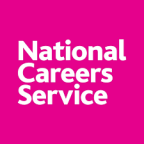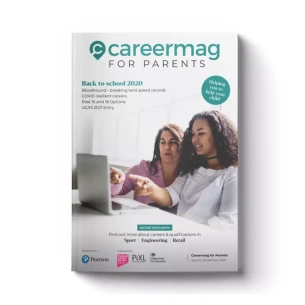Information for Parents
As a parent/carer you are one of the most influential people in your child’s life and in the best possible position to support them as they consider their future, review their options and make choices. At LHS we have a good Careers Programme providing education, information, advice and guidance and our Careers pages also signpost students to on-line information advice and guidance.
Research shows that children look to their parents first when they want career advice. Whilst some young people have a very clear idea of where they see their pathway leading them, others may take a while to decide – you can help by:
Starting the conversation
-
Focus on skills and behaviour your child will need, rather than specific jobs.
-
Talk about goals and what your child finds fulfilling.
-
Be open minded and encouraging.
-
Talk about what careers experiences your child has had at school (lessons, visits, tutor time, enrichment and assemblies).
-
Be patient as your child’s choices may change.
-
Remember it’s your child’s decision on what direction they want to go.
We realise it can be challenging to know how to ask the right questions, so here’s our Top Five Tips to get started:
-
Start with their interests, skills, abilities and values – get them to write them down
-
Talk about their likes and dislikes of different school subjects
-
Encourage them to link their skills and interests by using Xello (students have their own log-in) or the National Careers Service Skills Assessment
-
Identify 3 different jobs they may like to explore using Xello or the National Careers Service Job Profiles
-
Share your own experiences and talk about your own job or career and those of the wider family.
There are many organisations who offer advice and support to parents at various stages of your child’s career pathway from choosing options in Year 9, to post 16 choices, university, apprenticeships and funding support.
Careers Education, Information, Advice & Guidance
To develop students’ knowledge, understanding and skills relevant to life in a rapidly changing world
Aims of the Careers Programme
Longdendale High School believes that very student should have opportunities to learn about the world of work, employability skills and the personal qualities that are valued in the workplace in order to increase self-confidence and raise aspirations. Students can then make informed choices about future careers and develop employ-ability skills.
The careers programme promotes equal opportunities and challenges stereotypical thinking and attitudes. It helps students, including disadvantaged students and students with special educational needs to overcome any overt and/or hidden barriers to progress that they may encounter and ensures that all students receive appropriate information and guidance, especially at key decision and transition points.
High Quality Provision
Longdendale High School are working towards full implementation of the Gatsby Benchmarks to ensure that careers provision is of the highest quality for students.
The Gatsby Benchmarks are:
-
A stable careers programme
-
Learning from career and labour market information
-
Addressing the needs of each pupil
-
Linking curriculum learning to careers
-
Encounters with employers and employees
-
Experiences of workplaces
-
Encounters with further and higher education
-
Personal guidance
Overview of the Careers Programme:
The CEIAG programme is made up of the following elements:
-
A planned programme of careers education across each Year Group (7-11) delivered through PSHE modules
-
Impartial careers advice and guidance from both in house and external sources
-
Opportunities to develop knowledge of the workplace and develop employability skills
-
Provision of an extensive range of information about employment and education options including labour market information, entry requirements and progression routes
-
A one to one Careers interview in Year 11 and an action plan to discuss post 16 progression options
-
Targeted support for identified vulnerable pupils at risk of becoming NEET [Not in education employment or training] to discuss their post 16 options
-
Information on apprenticeships takes place in the Autumn Term
-
Raising Aspirations Days in September and March which invites a range of outside speakers to support the Careers Education programme
-
The tracking of student destinations data
-
A plan to meet the Gatsby Benchmarks which is regularly evaluated and updated
Key Stage 3:
By the end of this key stage, all students will have:
-
a better understanding of themselves (personal characteristics, abilities, interests, potential, weaknesses and limitations)
-
used careers materials to research information about opportunities, and used the information to help them make choices about post-14 courses and learning programmes
Key Stage 4:
By the end of this key stage, all students will have:
-
enhanced their self-knowledge, career management and other employability skills
-
used the Careers resources to investigate future choices and explore alternative routes to their goals
-
accessed advice, guidance and support to help them firm up their choices and think about the implications
-
gained direct experience of work and been involved with local employers in at least three other locations
-
chosen and applied for an appropriate opportunity and, if necessary, financial support
-
alternative plans in place, in readiness to respond to outcomes in external examinations
One to One Careers Interviews
-
Students are entitled to appropriate guidance to meet their individual needs. All students at school can request an appointment with the careers adviser but, in practice, Years 10-11 are most likely to access the service.
-
Students are identified for careers meetings based on need and through self-referral.
-
Our Careers Officer is Caroline Higgins, a qualified independent Careers Adviser from Positive Steps
Self-Referral for Careers Interviews
-
Students may refer themselves for a careers meeting at any point, directly via the careers office or via a Form Tutor, Head of Year, SLT. An appointment with the adviser will then be arranged. Students are made aware of the careers adviser through assemblies and via form tutors.
-
The careers adviser will record action plans. Students will receive a copy and parents and staff have the option to see this information so they can support the process.
-
If a student is absent or fails to attend, an alternative time will be arranged.
Careers Information
-
Careers information is available through relevant displays, information sent to form tutors, Facebook and the school website.
-
Careers Information can also be found in the library and in the careers office.
External providers
-
A range of external providers are invited into school to support the careers programme. These might include local colleges, universities, training providers, apprenticeship organisations, employers, school alumni.
-
In all cases, such staff and organisations will be vetted for suitability by the relevant staff at school.
-
Further information is available in the Provider Access Policy on the school website.
Resources
The school is committed to providing the resources to enable an effective careers programme, including adequate staffing, staff training and resources
Employer links
Links with employers, businesses and other external agencies will continue to grow through building on local community connections as well as through the support of the school's Enterprise Advisor.
Equal Opportunities
-
The school is keen to promote equal opportunities, challenge stereotypes and address limiting beliefs
-
All students can access advice and guidance tailored to their needs with support to explore options that suit their preferences, skills and strengths
-
The year team works on early-identification of students requiring additional support, with no limit placed on how many times a student might see the careers adviser
-
The careers adviser works with the SENCO to support Education, Health and Care planning and the inclusion team to support students who may be facing other challenges
-
The destinations of school-leavers are monitored and trends identified
Further Information
Please contact Mr J Bowland, Assistant Headteacher, for more information.
Applying to College or Sixth Form
Please find below links to our local colleges. Please use these links to research course information, find out the entry requirements and explore the college facilities on offer:
-
Aquinas College Stockport - www.aquinas.ac.uk
-
Ashton Sixth Form College - www.asfc.ac.uk
-
Blue Coat Sixth Form, Oldham - www.blue-coat.org
-
Clarendon Sixth Form College - www.clarendon.ac.uk
-
Loreto College - www.loreto.ac.uk
-
Myerscough College - www.myerscough.ac.uk
-
Oldham Sixth Form - www.osfc.ac.uk
-
Tameside College - www.tameside.ac.uk
-
The Manchester College - www.themanchestercollege.ac.uk
-
The Oldham College - www.oldham.ac.uk
-
Xavarian College - www.xaverian.ac.uk
Why think about Apprenticeships?
Apprenticeships offer the chance to:
-
learn job-relevant skills
-
build valuable experience
-
gain real qualifications that will positively start their career journey
-
earn a real salary
-
enjoy the benefits of being a full-time employee
Becoming an apprentice is an exciting opportunity to earn money and progress quickly in a career.
What is involved in an apprenticeship?
There are three main elements involved in an Apprenticeship
-
including English and Maths
-
work preparation skills / college course
-
a practical work placement with a local employer.
Apprenticeships are designed to enable an individual to progress within a business over a longer period of time whilst gaining nationally recognised qualifications.
Who are they for?
An Apprenticeship is a career, not just a job. Apprenticeships are for those aged 16 or over who are not in full time education and can last anywhere between one and five years.
Apprenticeships are designed to enable an individual to progress within a business over a longer period of time whilst gaining nationally recognised qualifications.
How much do you get paid?
The minimum wage for an apprentice is £3.70 per hour, but many employers pay more than this. In fact, some higher Apprenticeships can pay as much as £500 per week. More than just earning a salary, apprentices receive training and qualifications in the skills employers really want, increasing their future earning potential. Apprentices receive marked salary increases on completion of their training and the roles often offer great opportunities for career progression.
What is Labour Market Information?
Labour Market Information focuses on giving you information about the local area you live in:
-
Wage rates
-
Job availability
-
Skills gaps
-
Unemployment rates
-
Reports from professional bodies
-
Economic summaries from the local area
Labour Market Information ensures that young people are equipped with the information needed to make well informed realistic decisions.
The Bridge GM website tells you about the availability of jobs in Greater Manchester & Tameside. Information has also been provided by New Economy, Greater Manchester's Policy and Research Team.
Useful links:
Measuring the Impact of the Careers Curriculum
How the School measures & assesses the impact of the careers programme on students.
-
The school is using the ‘Compass evaluation tool’ to assess ongoing progress in relation to the eight Gatsby Benchmarks.
-
The school has a ‘Careers Plan’ in place to track progress in relation to this year's priorities and the eight Gatsby Benchmarks.
-
The ‘Careers Plan’ is reviewed termly.
The following steps are in place to evaluate the effectiveness of its careers programme each year.
The evaluation cycle involves:
1. Review of the objectives of the programme with a focus on outcomes for learners & assessing if the objectives have been met
2. Focus on the delivery of the programme and evidence of impact on students
3. Using feedback to adapting the programme to continuously improve it so it meets the objectives
The evaluation also involves looking at a range of evidence such as:
-
attainment
-
progress
-
options pathways
-
destinations data
-
feedback from students e.g. their understanding of different careers and pathways
Feedback from other stakeholders includes:
-
parents/carers
-
teachers
-
governors
-
employers
An outline of the evaluation schedule is as follows:
Are we making the best use of the resources we have allocated for careers work? (Termly)
-
The effectiveness of different guidance interventions, e.g. one-to one interviews, drop-in sessions
Are we optimising students’ learning from the careers programme? (Oct/July)
-
Evaluation of Raising Aspiration Days
-
The learning outcomes achieved at the end of KS3 & KS4
How well are students succeeding in taking the next steps in their education, training or employment that are ‘right for them’?
-
The effectiveness of the Year 9 options process
-
The destinations achieved at the end of KS4 e.g. Moving On Report
The school’s next review of the Careers information published is: September 2024.
This is the web-based service provided by the UK government. It provides a great deal of information on job and apprenticeship finding, along with high quality tools, such as a CV builder.
The National Apprenticeship Service is an important source of apprenticeship information and vacancies.
This website is an excellent resource for finding out information on careers across many different sectors. It also contains information on higher education and apprenticeships.
Career advice for schools and students aged 13-19. Search jobs, advice & find out about employers, work experience, courses, career choices, and apprenticeships.
CAREER MAP
This map-based website provides apprenticeship and education opportunities and vacancies in the local area, as well as blogs centring on specific careers.
Apprenticeships and jobs from some of the biggest recruiters in the country including British Gas, Boots, BT, Garmin, NHS and Starbucks. School leavers can apply directly from the website and their application is delivered immediately to the recruiter by email. Please click here to see our latest jobs and apprenticeships.
This site provides careers advice, choices and ideas. There are excellent videos and a handy career wizard to help provide inspiration.
This is an excellent resource with a particularly good CV building tool.
Specific Career Pathways
-
University application: www.ucas.com
-
Careers in the NHS: www.stepintothenhs.nhs.uk
-
Careers in the Police: www.policenow.org.uk
-
Careers in the RAF: www.recruitment.raf.mod.uk/career-and-benefits
-
Careers in the Navy: www.royalnavy.mod.uk/careers
-
Careers in the Army: www.armyjobs.mod.uk
-
Careers in the Fire Service: www.fireservice.co.uk/recruitment
-
Careers in the Theatre: www.getintotheatre.org
-
Careers in Social Work: www.nationalcareers.service.gov.uk/job-profiles/social-worker
-
Careers in Politics: www.prospects.ac.uk/careers-advice/what-can-i-do-with-my-degree/politics
Careermag for Parents, Carers and Guardians:
Careermag provides a wealth of high-quality career information and qualification guidance.
‘What should I do next?’
Many parents get in touch with us asking for advice on how to respond to their child when they ask this question. What may seem like a daunting question to many parents, doesn’t actually have to be. Careermag for Parents connects parents, guardians and carers with up to date labour market information. We explain the various qualification routes available and bust myths and misconceptions along the way.
Grab a cuppa and sit down with your child, there are lots of opportunities to explore!
Should any parents/carers want to sign up for future issues, please use the following link: https://careermap.co.uk/subscribe-to-careermag/
Year 11 students can take advantage of opportunities provided by NCS, where young people can grow their strengths and become world-ready and work-ready. Through a range of different experiences — online, in their community, and away from home, young people can build their confidence, resilience, and well being, gather work skills, and become engaged citizens who feel motivated to make a positive difference in society.








